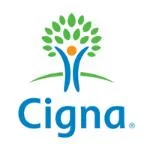A beginner's guide to healthcare in Sweden
Grattis on taking the plunge and deciding to move to Sweden! It won’t be long before you find yourself with a full-blown salty-liquorice habit and several daily fika alarms scheduled on your phone.

But hold on just a moment! Before you start enjoying the finer things in Swedish life, you should read up on the country’s healthcare system so you know who to call if you accidentally eat a bad herring.
We do have some good news - healthcare in Sweden is mainly tax-funded, which means all citizens get equal access to the same high-quality services.
To shed some light on the way it all works, we’ve pulled together some quick tips so you can get sorted minus the headache (and if you still get one, at least you’ll know where to buy painkillers).
Finding a doctor
If you need to see a doctor or nurse, you should contact your nearest healthcare centre, or vårdcentral, to arrange an appointment. All municipalities have a vårdcentral, and Sweden’s made it really easy for you to locate the one closest to you through 1177 Vårdguiden, an online and telephone service provided by the local counties and regions.
When you’ve decided on a healthcare centre, you should give them a call and ask to be registered. To complete your registration you must provide your Swedish personal number (personnummer), or your coordination number (samordningsnummer) if you’re here for under a year and have a taxable income. This entitles you to the same health care (at the same cost) as a Swedish citizen.
If you don’t yet have a personal number or anticipate you will be in Sweden for some time without one, you may want to look into private health insurance options like the packages offered by Cigna Global to ensure you have appropriate health cover at a reasonable cost.
Find out more about Cigna Global health insurance
Although not free, receiving medical and health care in Sweden is subsidised, and there is no charge for the care of children and young people under the age of 18. Fees can vary from one county or municipality to another, but are generally similar with a doctor’s appointment costing 100 to 300 kronor.
Sweden also has high-cost protection, högkostnadsskydd, which means there is a limit on the amount you are required to pay for health care each year that won’t exceed a maximum amount set by the county. This covers most kinds of healthcare, although daily hospital fees, vaccinations, missed appointments, and dental care are excluded.
If you aren’t fluent in Swedish, you can always ask how English-friendly the health centre is - often staff and doctors speak excellent English so you won’t encounter any language issues.
You are entitled to an interpreter which the healthcare centre can normally arrange for you. The service is free, but they may need to know in advance so it can be booked in. Of course, the details of your appointment are confidential and no information will be disclosed without your permission.
If your vårdcentral is closed and you have a minor medical issue, you can visit your local emergency unit or närakut, which can provide you with the same type of treatment. It isn’t absolutely necessary to make an appointment although ideally you would call up beforehand.
Emergency care
If you’re seriously ill or injured and need emergency medical care, you can visit the emergency room at one of Sweden’s 60 hospitals that provide 24-hour services.
Priority is given to patients in the most critical condition, so bear in mind that if after an initial assessment a doctor or nurse doesn’t think your problem is urgent you may end up waiting for several hours.
The fee for visiting an emergency room is between 220-400 kronor. If you’ve been in a serious accident and/or require ambulance assistance, you should call Sweden’s emergency number 112 free of cost from any mobile phone, landline or public payphone.
Specialist care
If you require specialist care, such as a dermatologist or physiotherapist appointment, the doctor at your health care centre can write you a referral. The referral, or remiss, will state the type of treatment you require and may also describe your current condition.
Sweden’s healthcare guarantee, vårdgarantin, ensures you will be offered an appointment with a clinic or specialist within 90 days.
In some counties you are able to skip the middleman and book an independent specialist without a referral. In most cases it is cheaper and easier to visit your healthcare centre first, and some clinics always require a doctor’s referral so it’s best to find out the demands of your chosen clinic first.
Pharmacies
Swedish pharmacies, or apotek, are ubiquitous and open during regular store opening hours, generally between 10:00-18:00 on weekdays and 10:00-14:00 on Saturdays. Pharmacists are able to offer advice and treatment for minor issues, and provide over-the-counter medication.
Prescription medicines which have been issued by your doctor or another authorised caregiver, are subject to high-cost protection and capped at 2,200 kronor. This does not include the purchase of non-prescription medicines, such as ibuprofen, aspirin, or any hygiene products.
There are 24-hour pharmacies in the major cities, so if you urgently require medication call 1177 or visit the website for advice on where to go.
Insurance
There is a high-level of care in Sweden; however, many expats choose to take out private health insurance from an international provider. Knowing you are protected no matter what happens can give you peace of mind in a country where you are unfamiliar with the system.
Cigna Global offers health insurance services designed specifically for expats, so you’ll be covered at every level. Once you your health is protected, you’ll be free to explore your newfound country without the stress of worrying about what to do if something were to happen to you or a family member.
Click here to get a free quote from Cigna Global
This article was produced by The Local Client Studio and sponsored by Cigna Global.
This content was paid for by an advertiser and produced by The Local's Creative Studio.

Join the conversation in our comments section below. Share your own views and experience and if you have a question or suggestion for our journalists then email us at [email protected].
Please keep comments civil, constructive and on topic – and make sure to read our terms of use before getting involved.
Please log in here to leave a comment.